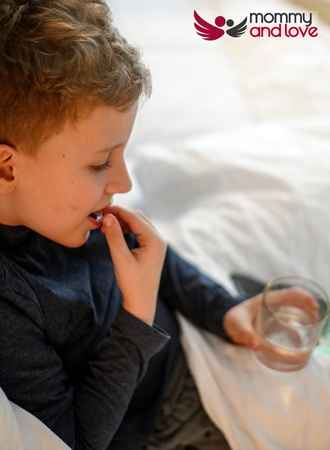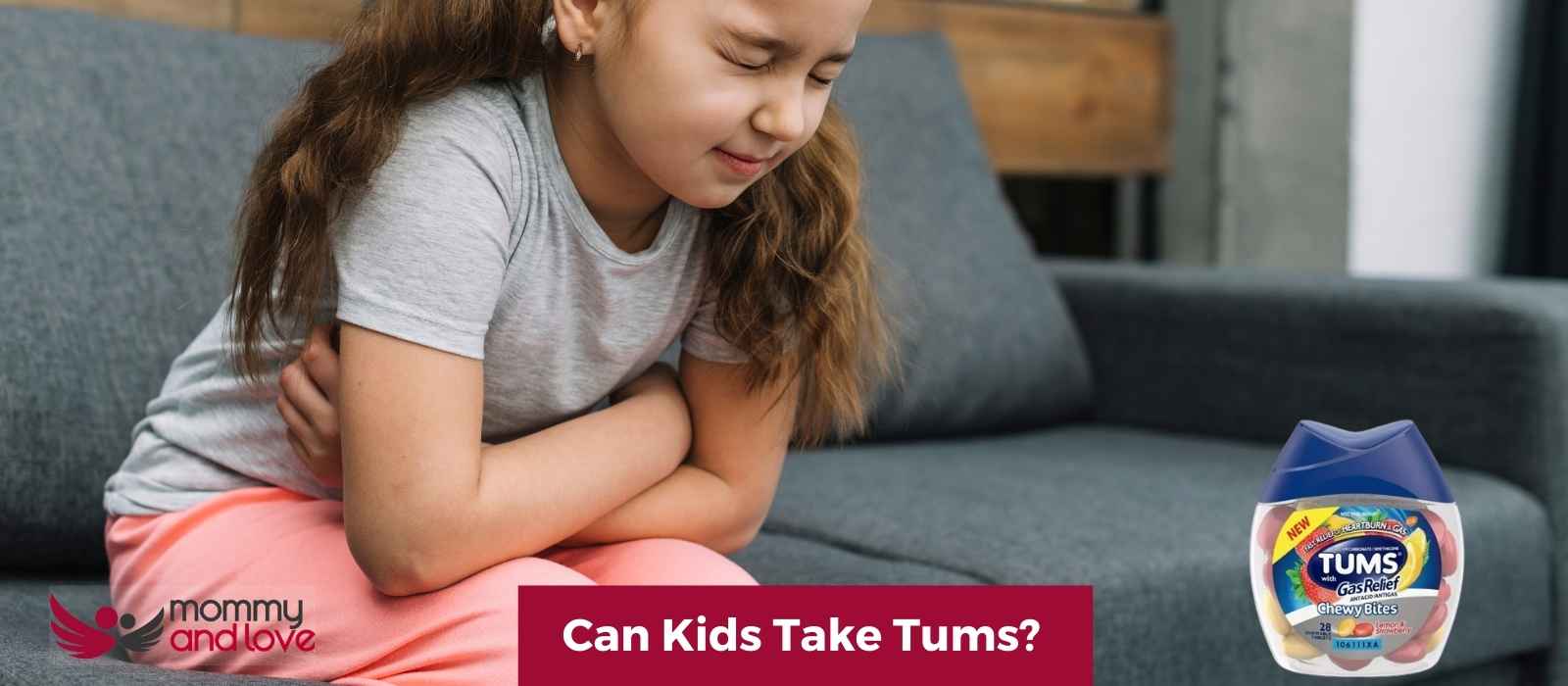If you’ve got a belly ache, indigestion, or some other digestive complaint, Tums is an over-the-counter calcium supplement medication that’s known to be incredibly effective.
But for younger children, not all medications are safe so a lot of parents wonder whether it’s OK to treat their child’s stomach ache using Tums to relieve acid reflux.
According to medical professionals, it is not a good idea to give Tums to children under the age of six. However, there are stomach medications that are suitable for kids so it’s worth speaking to your doctor who can advise you on the best course of action.
But what we need to keep in mind is that younger kids aren’t always able to communicate their needs effectively. When they say they have a stomach ache, they may be exaggerating or could even be saying it for attention. In those cases, you don’t want to administer medication where it’s really not necessary.
Key Takeaways
How to recognize a belly ache in toddlers and young children
Signs that your child is looking for attention
Using a placebo
Other medications for children with stomach aches
What Are Tums Used For?
Tums is a medication that is used to settle a sour stomach that results in symptoms like heartburn and acid reflux. The general name for Tums is calcium carbonate which is an antacid that settles the stomach by lowering how much acid is in there.
Since calcium carbonate has a calming effect on the stomach, Tums are known to bring relief when upset stomach symptoms occur. However, as a general rule, Tums are not recommended for anyone under six years of age.
What Happens If My Child Has Tums?

One of the most important rules of parenting is to make sure that any medications or dangerous substances are well out of reach and preferably locked away. But come on, we’re all only human and sometimes accidents happen. So don’t give yourself a hard time if your child gets their hands on a packet of Tums and eats a few.
The good news is that the side effects shouldn’t be too bad. While it isn’t advisable to give children under six Tums on a regular basis, having a dose accidentally is highly unlikely to cause any serious side effects.
Usually, the effects are mild and may include constipation and excess gas. Of course, if you notice anything worrying then you should seek advice from your family practitioner.
Does My Child Have An Upset Stomach?
Knowing whether your kid actually has an upset stomach or stomach pain or is just after some attention or comfort can be difficult. It’s even harder with younger kids as they’re not always able to tell you what they need. This is where parenting truly becomes a guessing game.
We will look at some of the giveaway signs that your little one is looking for attention later on. But for now, let’s cover some of the things you might notice if they genuinely aren’t feeling well.
Some of the most common signs of an upset stomach in children are diarrhea, nausea, vomiting, and changes in their appetite. Other times, your child may suffer from constipation or gas which may be what causes them to complain that their stomach hurts.
When children are genuinely sick, they may also pee more frequently or more often, depending on the situation.
Of course, there are many other signs that a child isn’t well and you know your son or daughter better than anyone. If you are at all concerned about their health then consult a doctor immediately.
Signs Your Child Is Looking For Attention

Most pediatricians would tell you that there should be other symptoms that you, as a parent, can pick up on to determine if your kid is sick. As a rule, taking their word for it may result in us giving them extra medications when the issue could have been resolved in another way.
Children can fake illness for all kinds of reasons. Sometimes, they’ll do it when they aren’t feeling secure; perhaps if there’s been a big change in their lives. Pretending to be ill will get them the attention they need from their parents to feel safe and secure again.
Other times, your child might think it’s a great idea to fake being sick to get out of school or some activity that they don’t want to take part in. If they’ve been complaining that they don’t want to take a test at school, play in a football match, or go to church on a Sunday morning, then do consider the fact that they’re trying to pull the wool over your eyes.
Children may also mimic your behavior. If you’ve recently had a sour stomach then your child may simply be copying you.
Finally, you may need to consider that your child is hungry or has eaten too much. Those feelings you get when your tummy is either really empty or has been over-filled can be confused by children as feeling sick.
Using A Placebo
If your kids are anything like mine, they’re incredibly stubborn! Once they get the idea into their heads that they need a remedy, they won’t relent until they get what they want.
Of course, you don’t want to give prescription drugs or other drugs to your child for the sake of it. But there are things you can give that act as a placebo. In other words, your child will think they’re getting medication when really, you’re just giving them a multivitamin.
I wouldn’t recommend doing this as a go-to way of hushing your child when they’re complaining of a stomach ache or other illness. Doing this could result in them becoming reliant on medications, according to some experts.
However, offering a child a chewable tablet from time to time won’t hurt them and these things contain goodness like vitamin C, which is never a bad thing.
Before offering a placebo, I would suggest trying some home remedies or even just giving your little one some cuddles and attention. This may be enough to quell them without the need for any placebos at all.
What Can You Give A Child With A Stomach Ache?

If your child is suffering from symptoms like diarrhea, vomiting, gas, or general stomach upset then you may need to give them some sort of medication.
As I have mentioned, Tums is used for indigestion and symptoms such as heartburn and acid reflux. For children, there are a variety of antacids designed specifically for younger bodies and these are especially effective if your child also has other symptoms like throwing up or diarrhea.
Check out some of the following medications:
Pepto Bismol for kids – this brand even has a medication that is aimed at children under the age of two
Kid’s Immodium
Tummy ache tablets by Hyland’s For Kids
Tums Kids is also made by tums and is designed for children aged 2-11 years.
Also take a look at your child’s diet to see if anything is causing specific issues. Keeping a food diary can help to see if your child is perhaps suffering from an allergy or has lactose intolerance or may even need a gluten free diet.
Conclusion
There are certain prescription drugs and even over-the-counter medications that are not suitable for children. It’s essential to check medication packaging and speak to your doctor before administering anything.
Children often complain of a tummy ache but we have to first figure out whether they’re being genuine or just looking for attention.
If you’re confident that your child is sick then you may be wondering if you can give them Tums to settle their stomach. Tums are designed to lower the amount of stomach acid and provide relief from acid indigestion and heartburn. However, they are not recommended for children under the age of six.
There are other medications designed for children that can provide gas relief, soothe a sour stomach, and reduce symptoms like vomiting and diarrhea which contain natural and artificial flavors. If you are in any doubt, always speak to your doctor.




